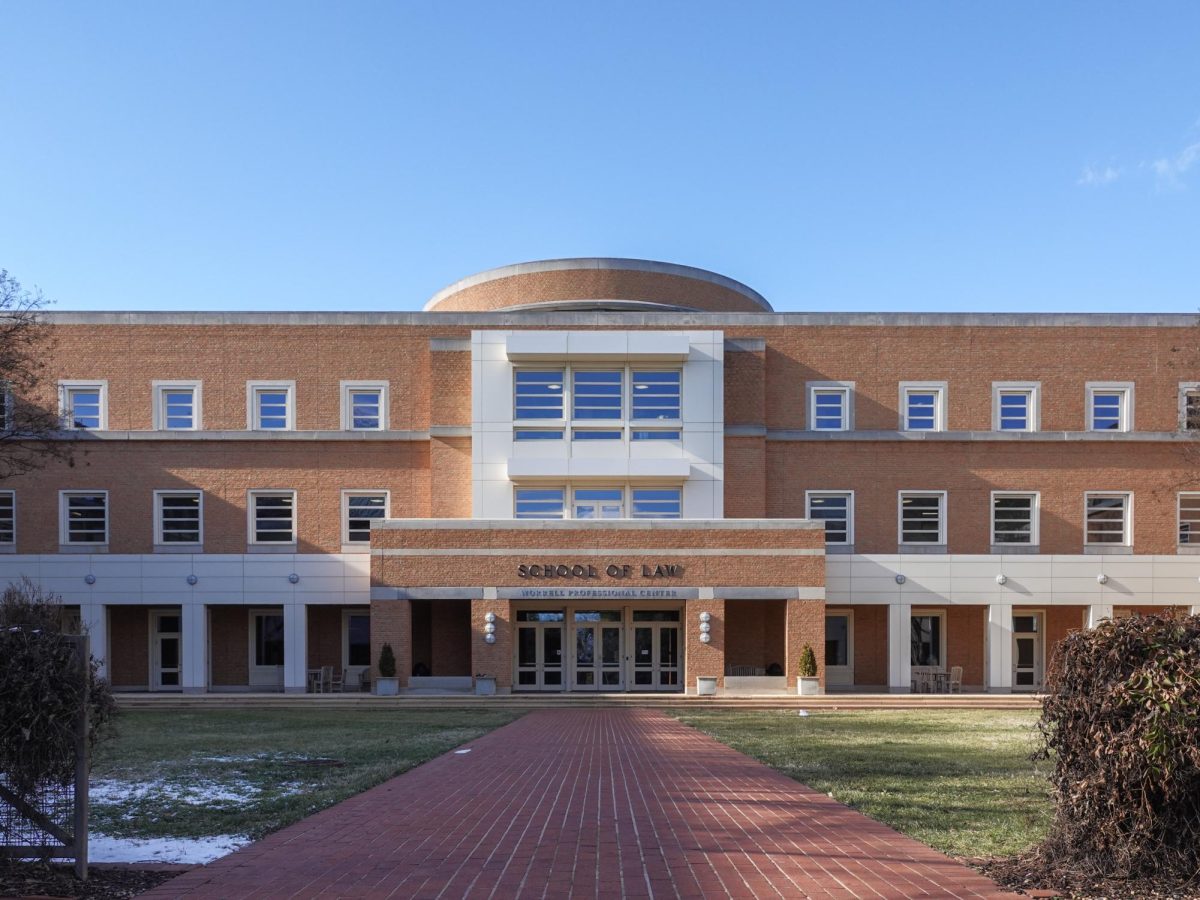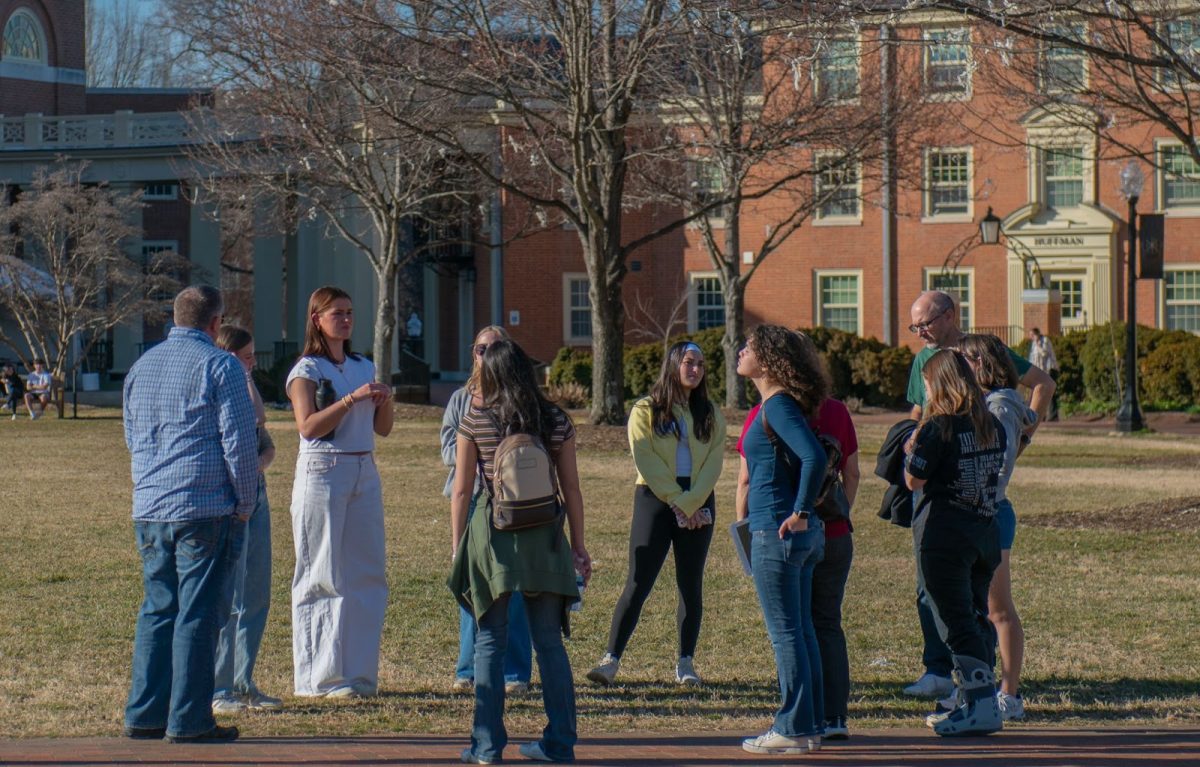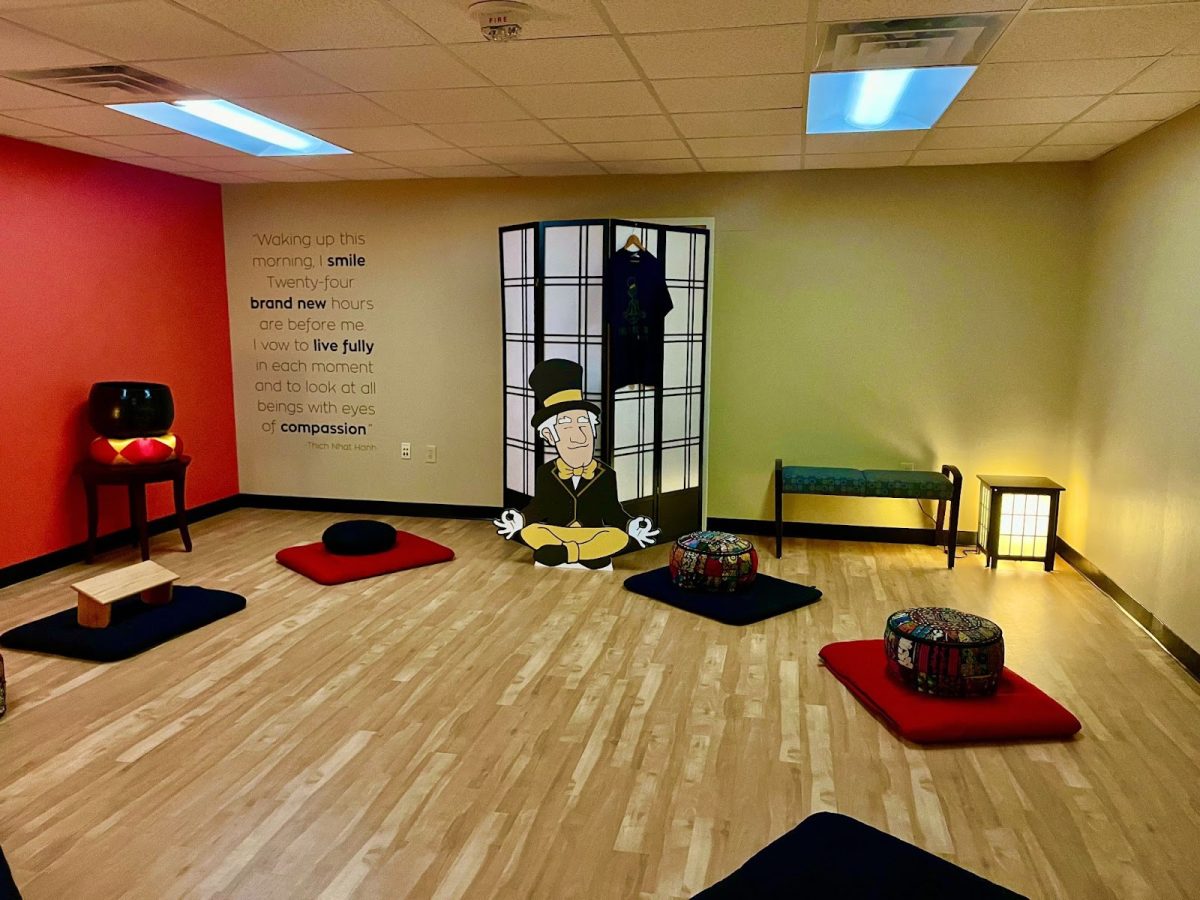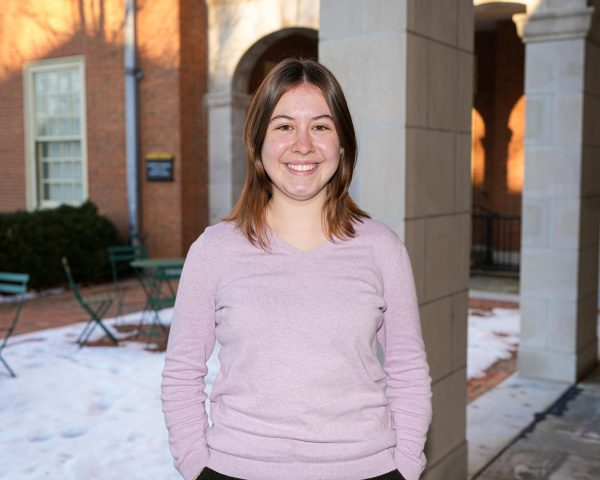For the past month, freshman Owais Kamran has woken up before dawn every day. He sets an alarm on his phone for around 5 a.m., and his parents call him a few minutes later to check that he’s awake.
A devout Muslim, Kamran is currently participating in sawm — known in English as fasting — as part of the holy month of Ramadan. This year’s Ramadan began on Feb. 28 and is expected to conclude on March 29 with the holiday of Eid-al-Fitr. The small Muslim community at Wake Forest joins the nearly two billion Muslims around the world who do not eat any food or drink any water from sunrise to sunset during this month to center their attention on God.
Fasting in a new setting
Every night, Kamran fills a green take-away box from the Pit. He keeps the food in his dorm room fridge for suhoor, the meal that Muslims eat before each dawn during Ramadan to bolster their strength for the day. The university provides Muslim students with grab-and-go food for this purpose, but Kamran prefers to assemble his meal himself. He ensures that his suhoor contains enough nutrients and protein to fuel him throughout the day, but is also easily digestible enough to eat in the ten minutes between his waking and when he performs Fajr, the first prayer of the day.
After eating, he brushes his teeth and tries to drink at least two glasses of water. Then he unfolds his prayer rug in the direction of the Kaaba shrine in Mecca, Saudi Arabia, Islam’s holiest site. He prays quietly and in the dark to avoid disturbing his roommate, then usually returns to bed — he finds that fatigue, rather than hunger, presents the more significant challenge during Ramadan.
Kamran has observed a full fast for Ramadan each year since he was 13 years old. While he appreciates how it allows him to grow in his faith, he admits fasting is mentally and physically difficult.
“Yesterday, I was in my 7 p.m. class and wanted to put my head on the table. I had to stop myself from literally crashing out in the middle of class,” Kamran said. “I probably missed whatever slide my professor had up, but usually it’s not too bad in the middle of the day. If it’s early in the day, it’s doable.”
When he’s at school, Kamran tends to break his fast alone. He sets another alarm on his phone for sunset. When it rings, he eats a date and drinks several glasses of water, then heads to the Pit to eat and collect food for the next morning’s suhoor.
Kamran said that observing Ramadan as a college student has been “harder than [he] thought it would be,” especially since he is separated from family and friends while at school. When he went home to Charlotte, N.C. during spring break, Kamran enjoyed celebrating iftar at home and at his mosque. He especially misses his mom’s butter chicken and samosas and is excited to return home for Eid.
While navigating fasting on his own can be daunting, Kamran says he has come to recognize that the difficulties are integral to the experience of Ramadan.
“When [we] get to the end [of Ramadan], my parents or the lecturers always say they wish they could have taken advantage of this opportunity even more, while for me, I feel like I was just trying to survive,” Kamran said. “[But] maybe that’s also an important thought framework, being conscious about my hunger or sleep. If I’m just ignoring [the effects of fasting], then that’s reducing the weight that it carries.”
Whether through appreciating God’s creation, reflecting on passages from the Qur’an or increased social justice advocacy, fasting is intended to inspire both righteous conduct and attitudes. In his quest to reconcile behavior with belief, Kamran strives to adhere to the pillars of Islam with the right intentions in his heart.
“Something that I’ve struggled with is trying to get the five daily prayers done on time,” Kamran said. “Before I was in college, my parents always reminded me to do it. It also felt a lot more like an obligation rather than something I do for piety. So I’m learning about how to foster piety on [my] own.”
While Islamic doctrine does state that God’s blessings increase multifold during Ramadan, Kamran doesn’t want to fast for fasting’s sake — he believes it is worthless if not paired with other moral works.
“[Fasting] gives a lot more weight to my actions because I’m going through all the suffering. I try to justify [my fast] by small things — picking up trash, talking with more people,” Kamran said. “The whole idea of Islam is that it is a way of life. It is supposed to be like a framework for which you do all of your other actions.”
He continued: “It’s not as much about the food as what the lack of food symbolizes. It’s supposed to emulate what beggars feel when they are starving day to day, how people in war torn countries [feel] right now. How do they go through not just 30 days, but 365 days or their entire lives? It’s the same hunger without any assurance that they will have something to break it with. The true meaning of Ramadan is getting that empathy, being grateful for the food that you have and being inspired to be generous towards those who don’t have as much as you.”
Observation in different forms
No matter how Muslims observe Ramadan, the purposes of the holiday remain constant. Sophomore Hunniya Ahmad shared her appreciation of Ramadan as someone who adheres to alternative spiritual practices. Ahmad fasted for the first time in middle school but was unable to continue fasting after developing eating disorders in high school.
“That was really hard for me, because for a lot of my life [fasting] was the way I felt most connected to God,” Ahmad said.
Like many other Muslims who are medically exempt from fasting, Ahmad performs additional charitable acts during Ramadan as a substitute. She sends money to her extended family in Pakistan to purchase meals for the local homeless population there.
“I feel like I’m super religious, but I’m less of someone who makes sure I follow these strict rules and things like that,” Ahmad said. “I focus on my connection to God. I make sure to be thankful every day and treat people well.”
Participation in aspects of Ramadan is not necessarily limited to practicing Muslims. In a statement, Assistant Chaplain for Muslim Life Imran Haq encouraged all students to explore Muslim Life events, such as their monthly educational talk series that discuss different elements of Islam. The Muslim Student Association (MSA) also hosts weekly iftars and Qur’an reflection groups. Both Muslim Life and the MSA post event information on their respective Instagram pages.
Haq is looking forward to the 2025 Fast-a-Thon, which will take place on Wednesday, March 26. At this annual event, Wake Forest students of all religious backgrounds and expressions fast for a day, then gather to celebrate Iftar on Manchester Plaza.
“If you have Muslim friends and feel like you want to connect with them on a deeper level, try fasting during other days if you are comfortable with that!” Haq said. “It might be a lot of work to do a full fast, so even a partial fast can build empathy and solidarity.”











